Last week, we posted the first part of our analysis of a new poll which we commissioned with the Carolina Partnership for Reform. The survey was conducted by Meeting Street Insights of registered voters in North Carolina between April 25-28. The survey had a sampling size of 500 registered voters with a margin of error of plus or minus 4.38%.
In that post, we showed the methodology behind the poll and then took a look at North Carolina’s political environment. Today, we’ll look at the issue agenda, and the poll respondents’ reactions to various legislative proposals and a number of other hot-button issues.
The Issue Agenda
We asked voters to share in their own words the most important issues facing the state: inflation tops the list, followed by education and the economy. The question was open-ended:
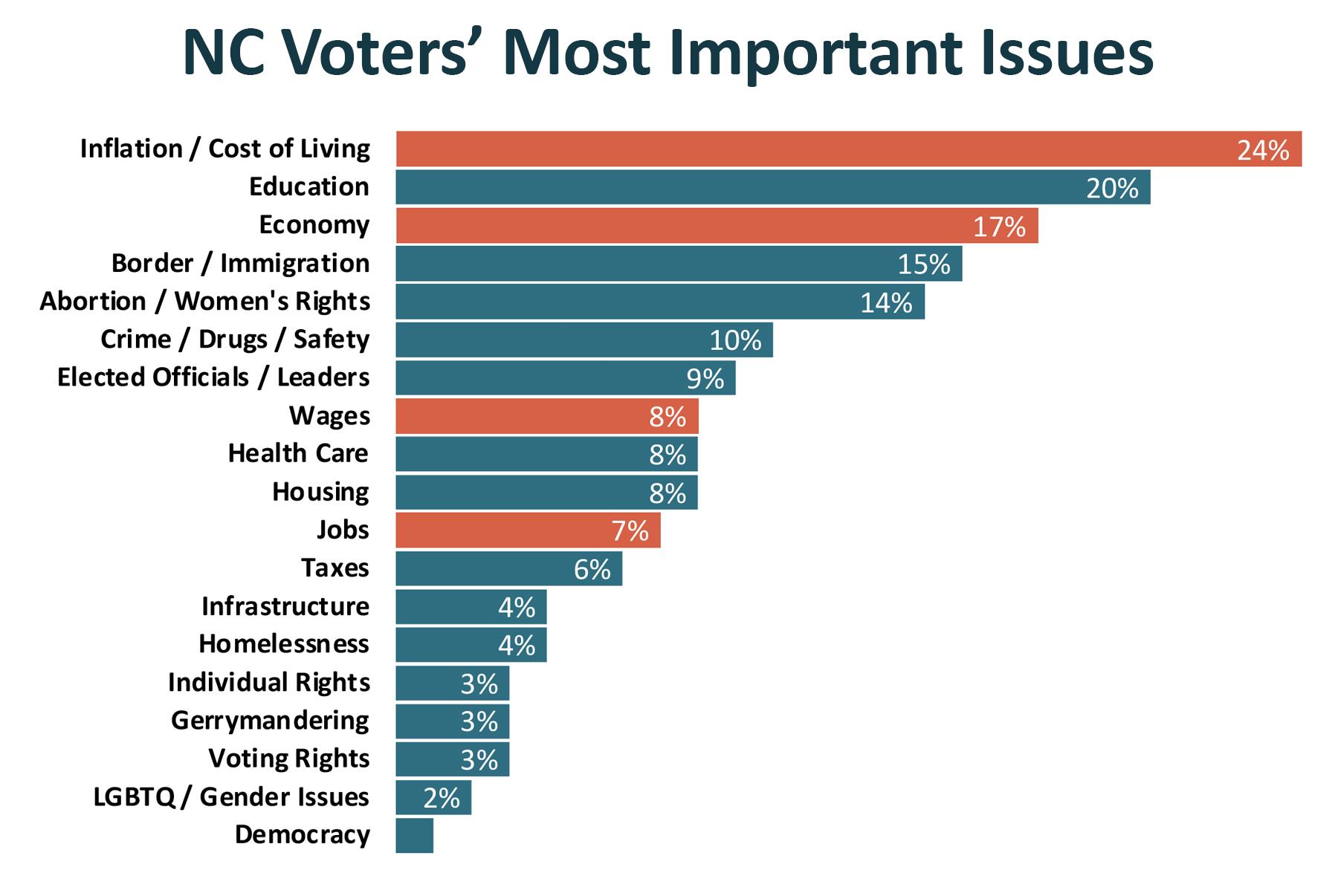
Inflation is a significant concern across party lines, though Republicans are most concerned about the border while Democrats are most focused on education:
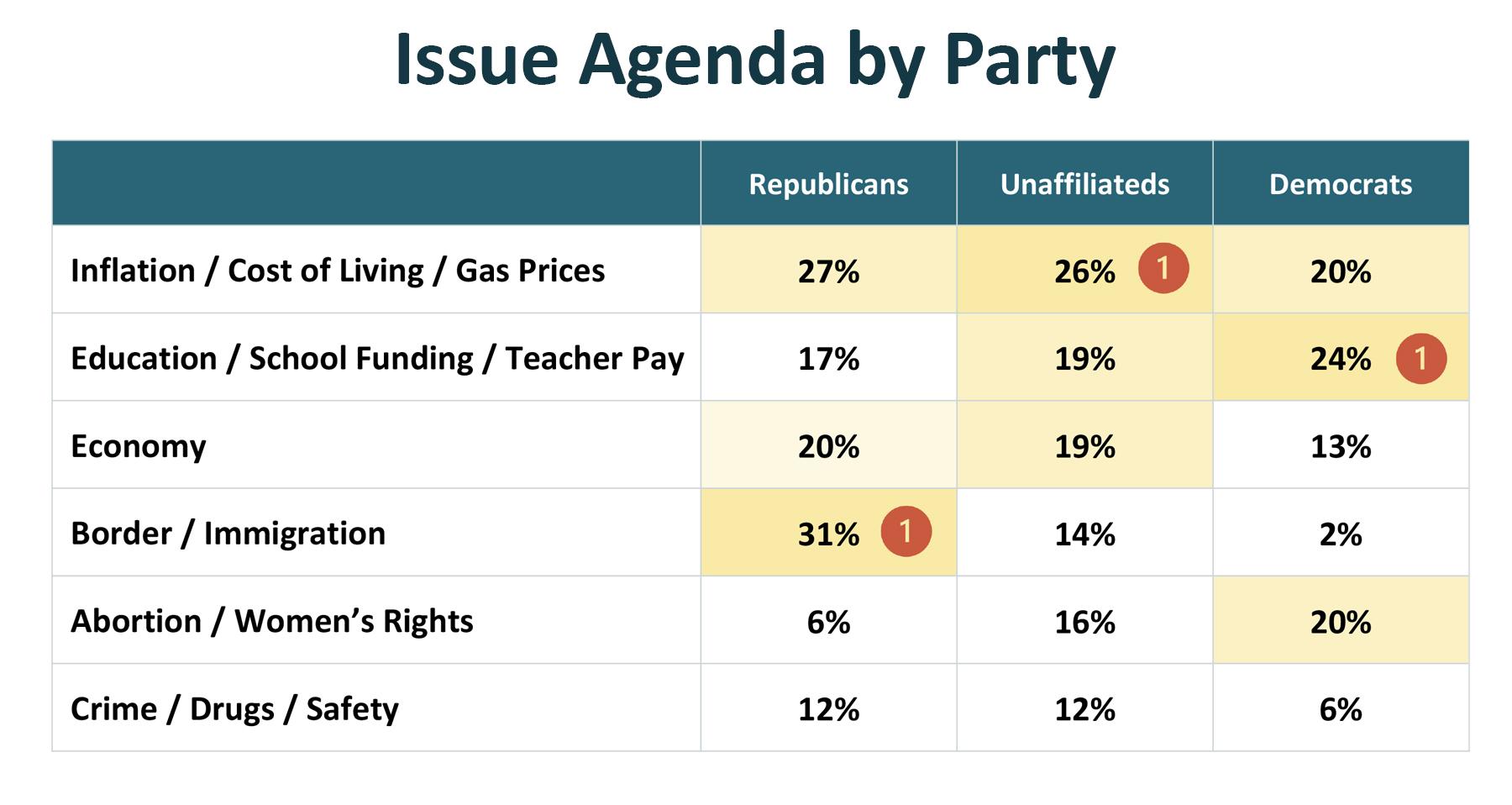
Poll respondents were asked “Generally speaking, how do you think North Carolina’s economy compares to the nation’s economy overall? Do you think North Carolina’s economy is better, worse, or about the same as the national economy?” A majority of voters say North Carolina’s economy is performing about the same as the nation’s economy (it has consistently outperformed the national economy for the last decade), while very few think it’s performing worse:
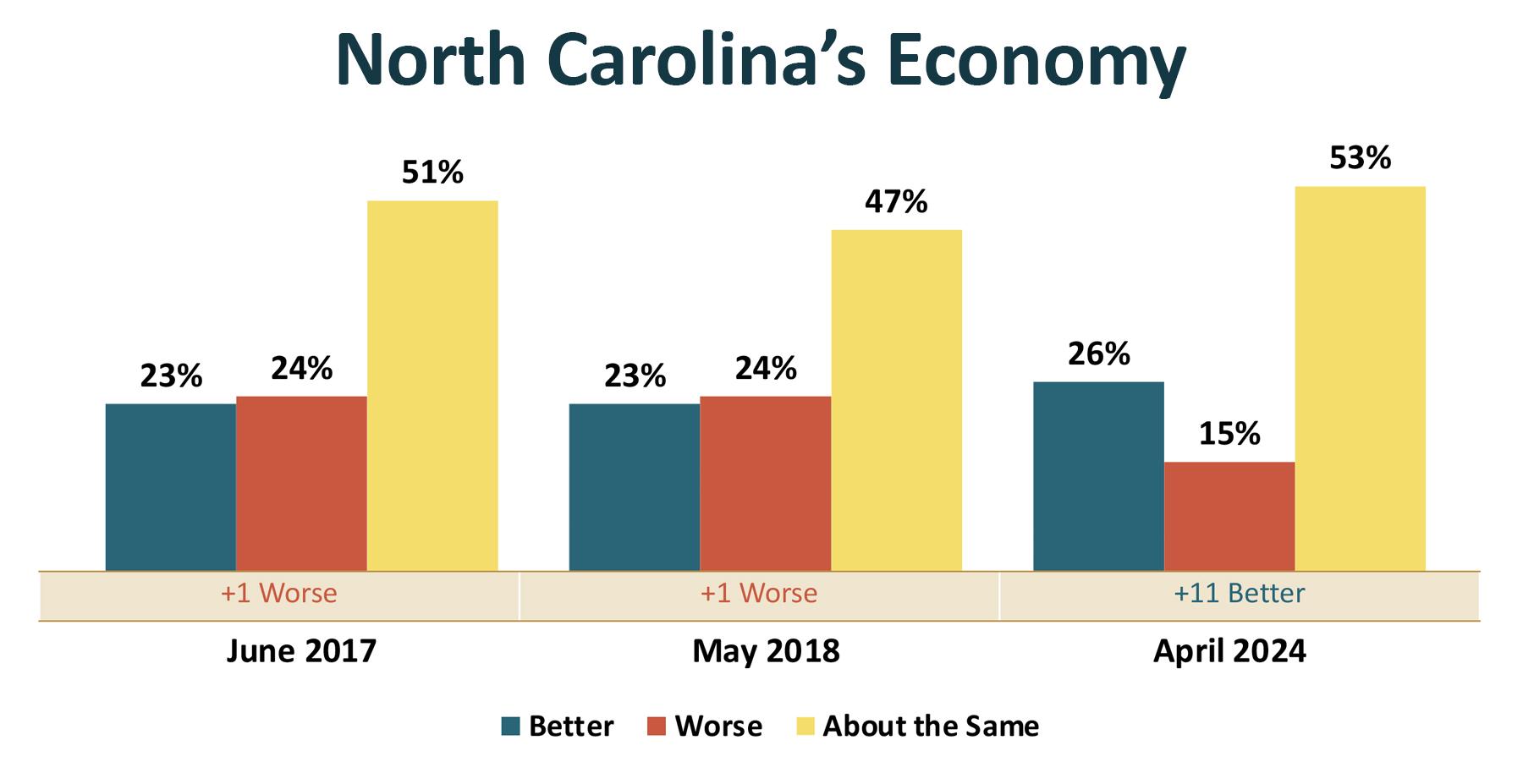
Poll respondents were asked “Over the last year, has your own personal financial situation gotten better, gotten worse, or stayed about the same?” Very few North Carolinians report their own personal financial situation is getting better, while four-in-ten voters say it has gotten worse:
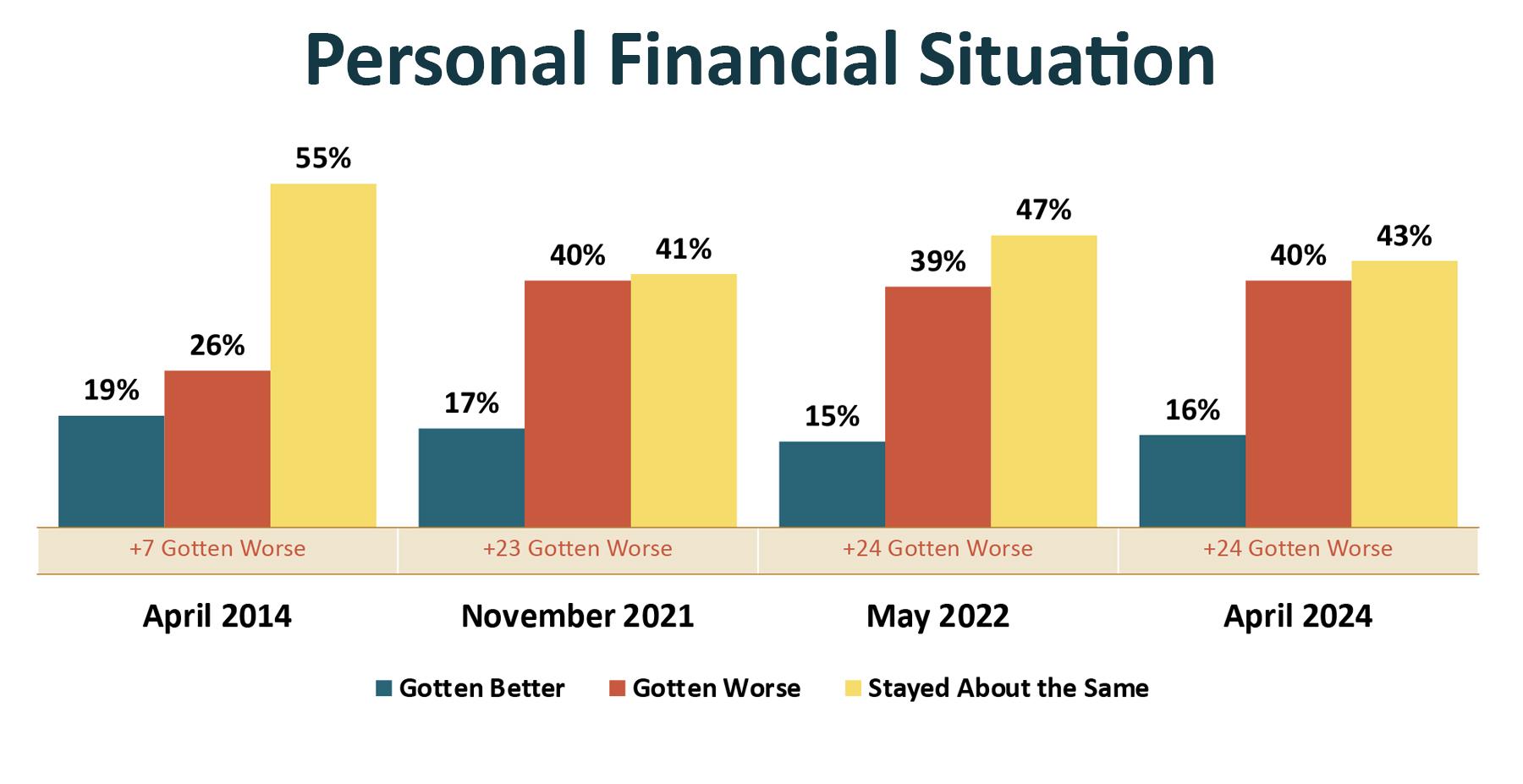
Fewer voters this year than last agree that political correctness and “wokeness” have gone too far in our state’s public universities:
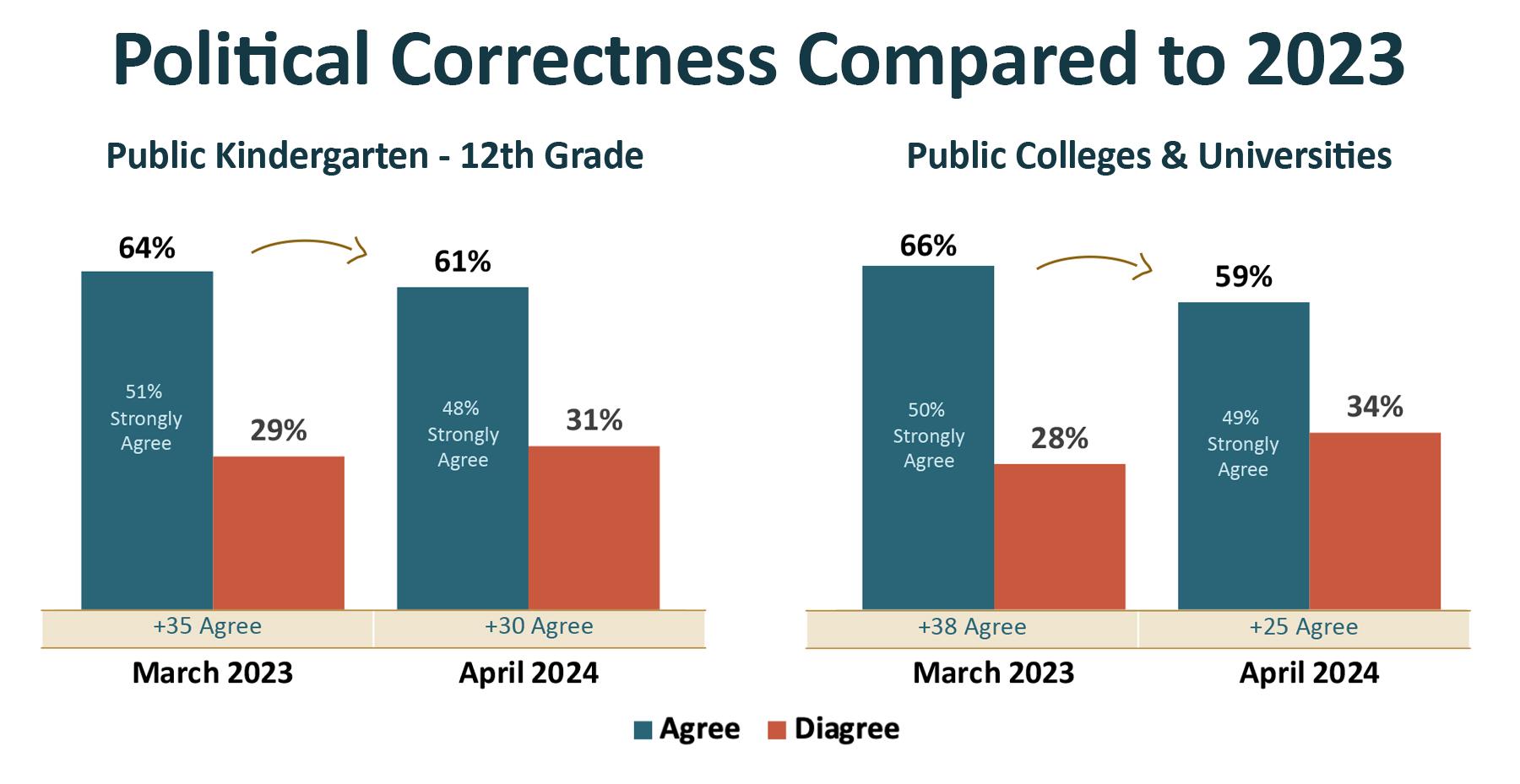
That said, majorities of voters and majorities of parents say political correctness and wokeness have gone too far in both NC’s K–12 schools and universities:
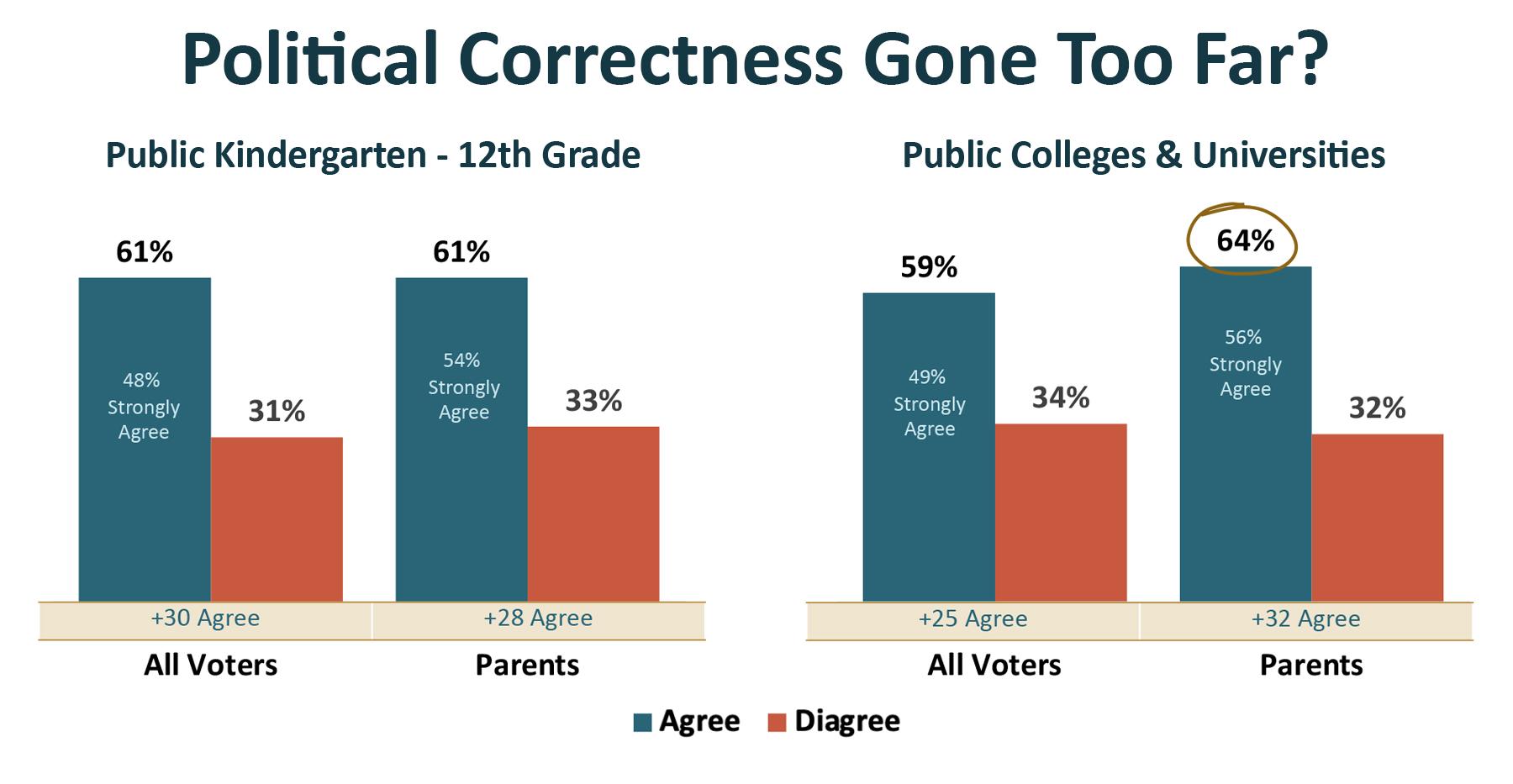
Poll respondents were asked “Do you think the Opportunity Scholarship Program should be limited to low-income families, or available to all families across the state?” Voters are evenly split:
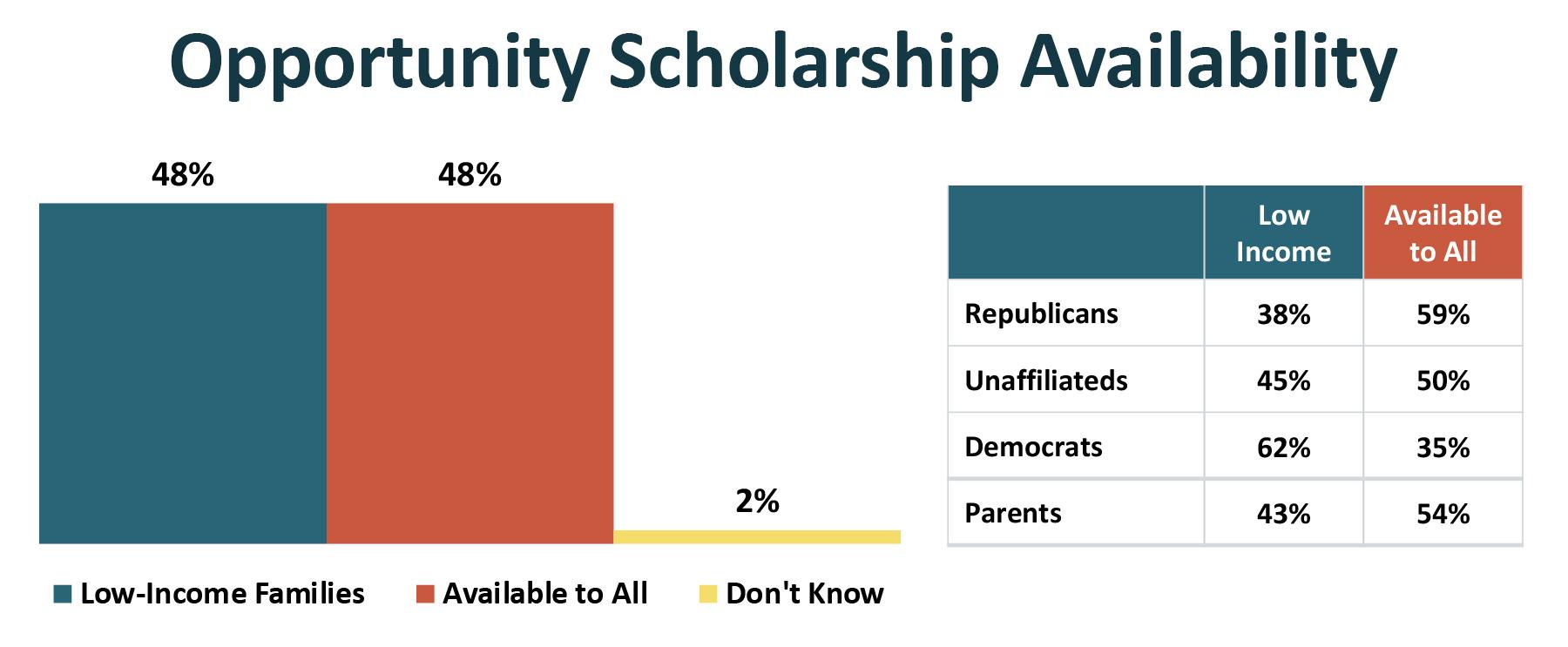
Poll respondents were asked “Now, thinking about an issue that is often in the news, on the issue of abortion, do you consider yourself to be pro-life or pro-choice?” Since the Dobbs decision was leaked in early 2022, North Carolina voters have become more likely to consider themselves pro-choice:
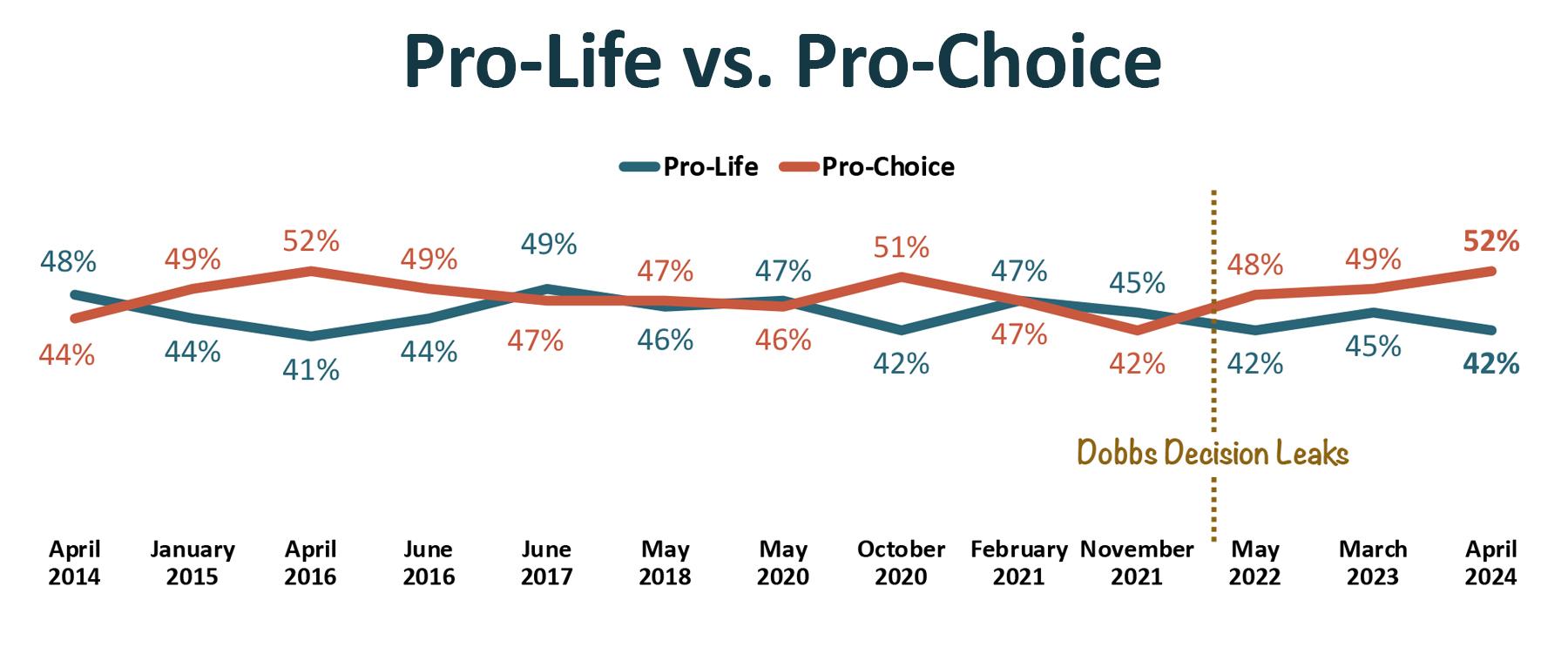
Participants were asked “As you may know, a new law went into effect in North Carolina last year that allows abortions for any reason up to 12 weeks of pregnancy and then restricts abortions after 12 weeks of pregnancy except in cases of rape, incest, the health of the mother, and life-limiting fetal abnormalities. Which of the following comes closest to your own opinion about abortion in North Carolina?” Voters express mixed opinions on the state’s new abortion law:
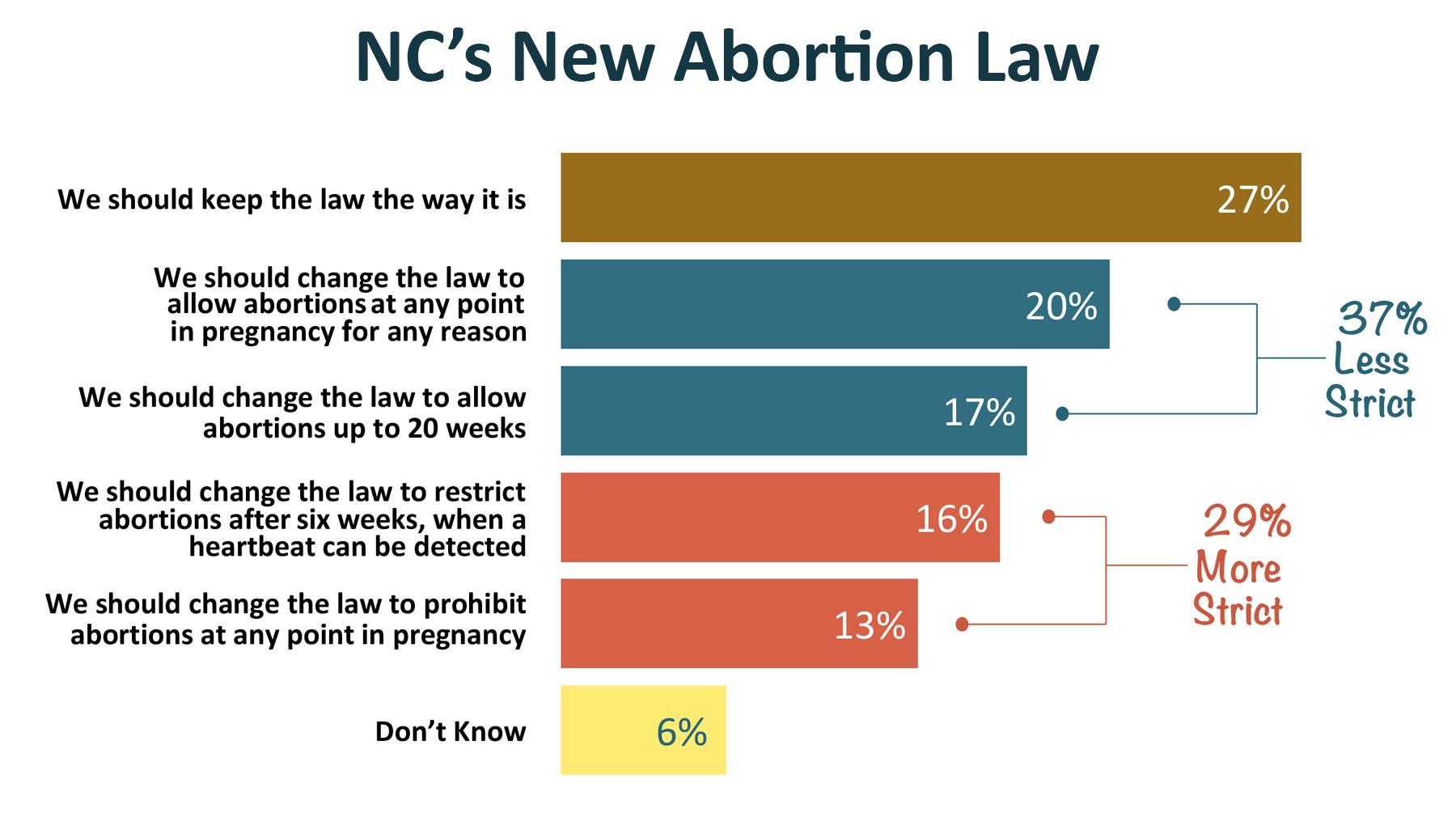
Reactions to Legislative Proposals
We asked respondents if they supported requiring local sheriffs to work with federal immigration enforcement officials and if they supported expanding the North Carolina Attorney General’s authority to assist with immigration law enforcement. Support for these two immigration policies is wide and bipartisan:
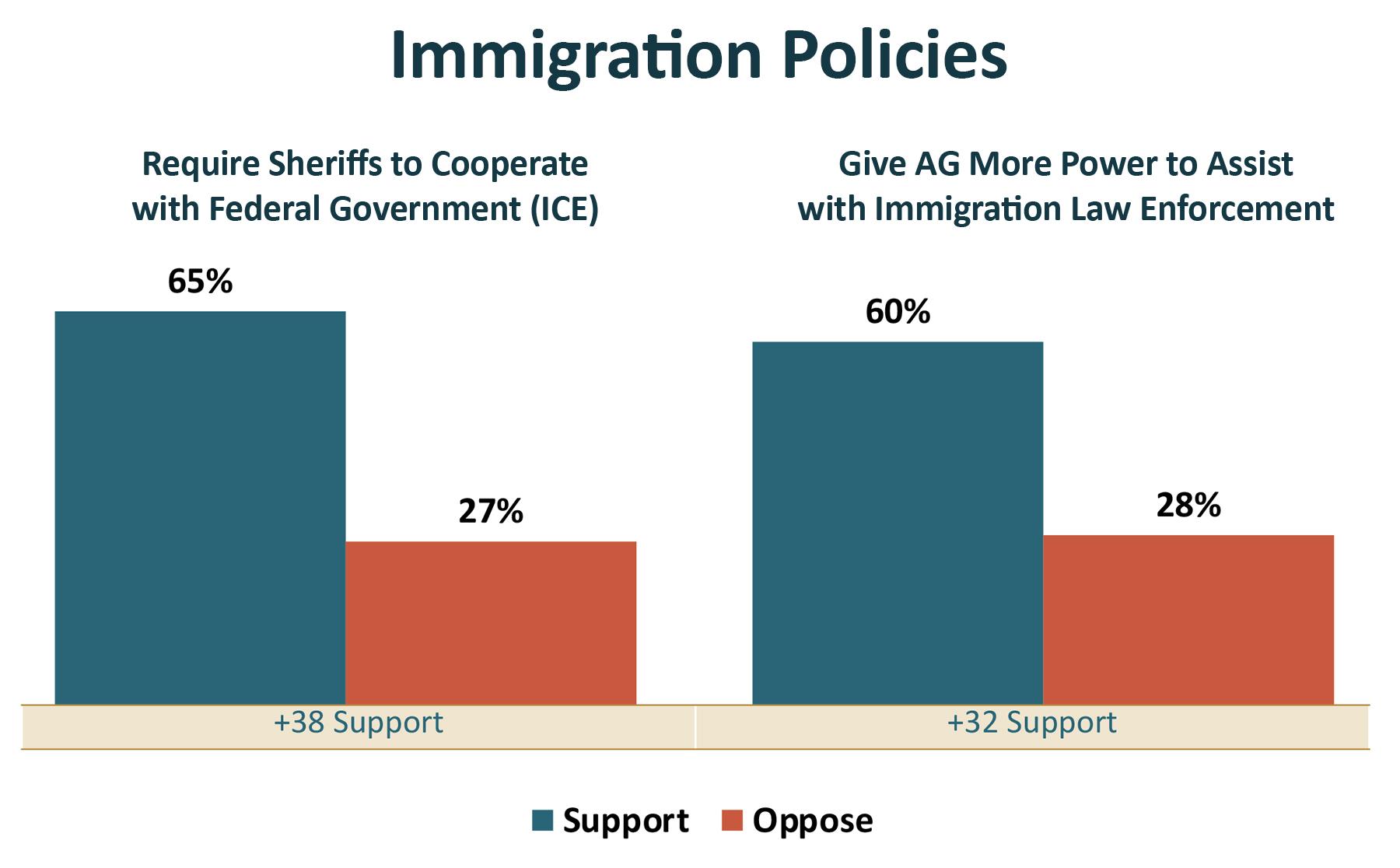
Banning the use of AI for inappropriate content and allowing defendants under 18 charged with violent crimes to be tried as adults are all generally supported. Half of the respondents opposed eliminating Diversity, Equity, and Inclusion (DEI) positions in North Carolina’s public schools and universities:
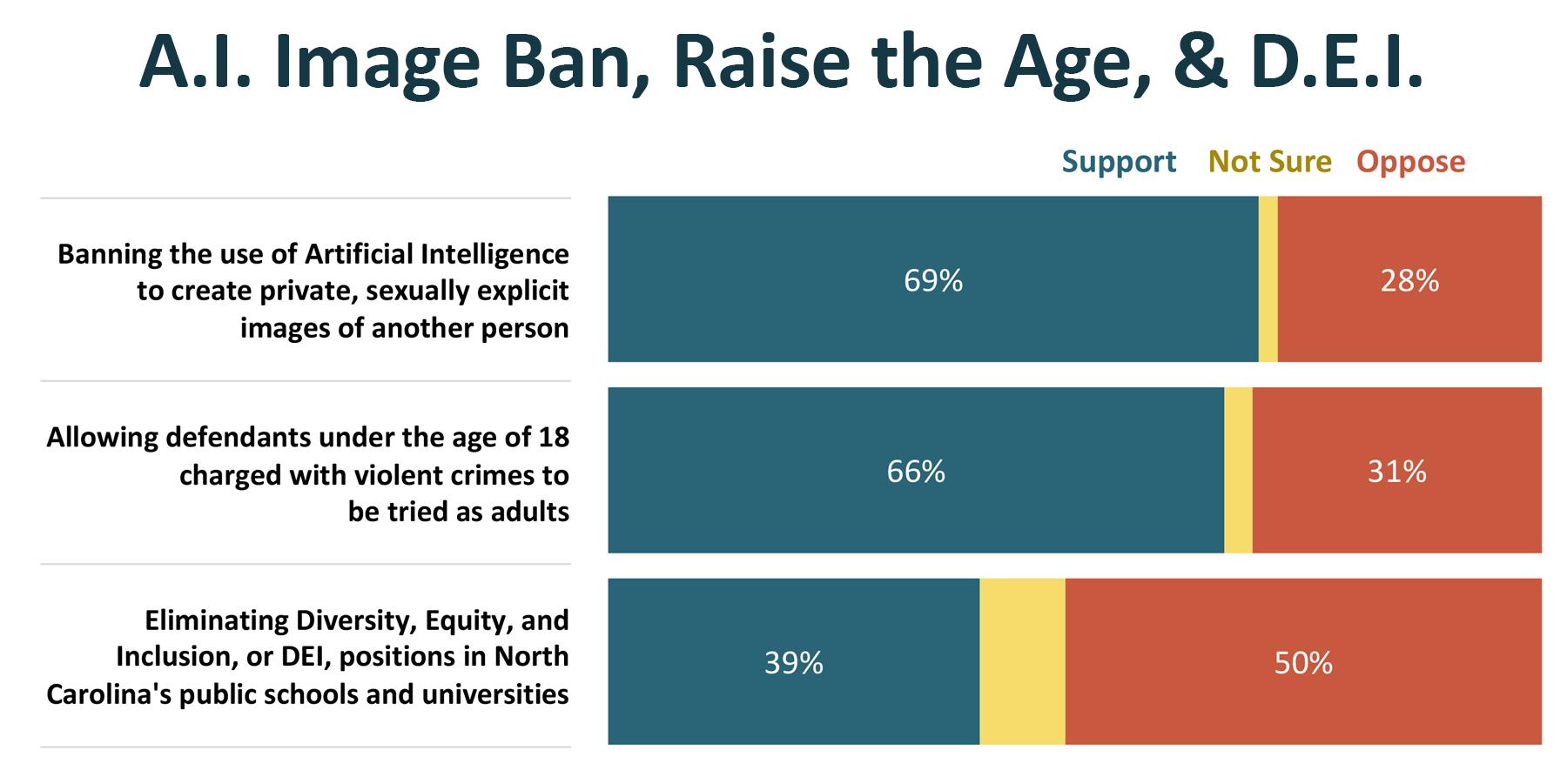
Voters are split about whether the State Legislature should prohibit students from having cell phones. Moms oppose the idea, while Dads support it:
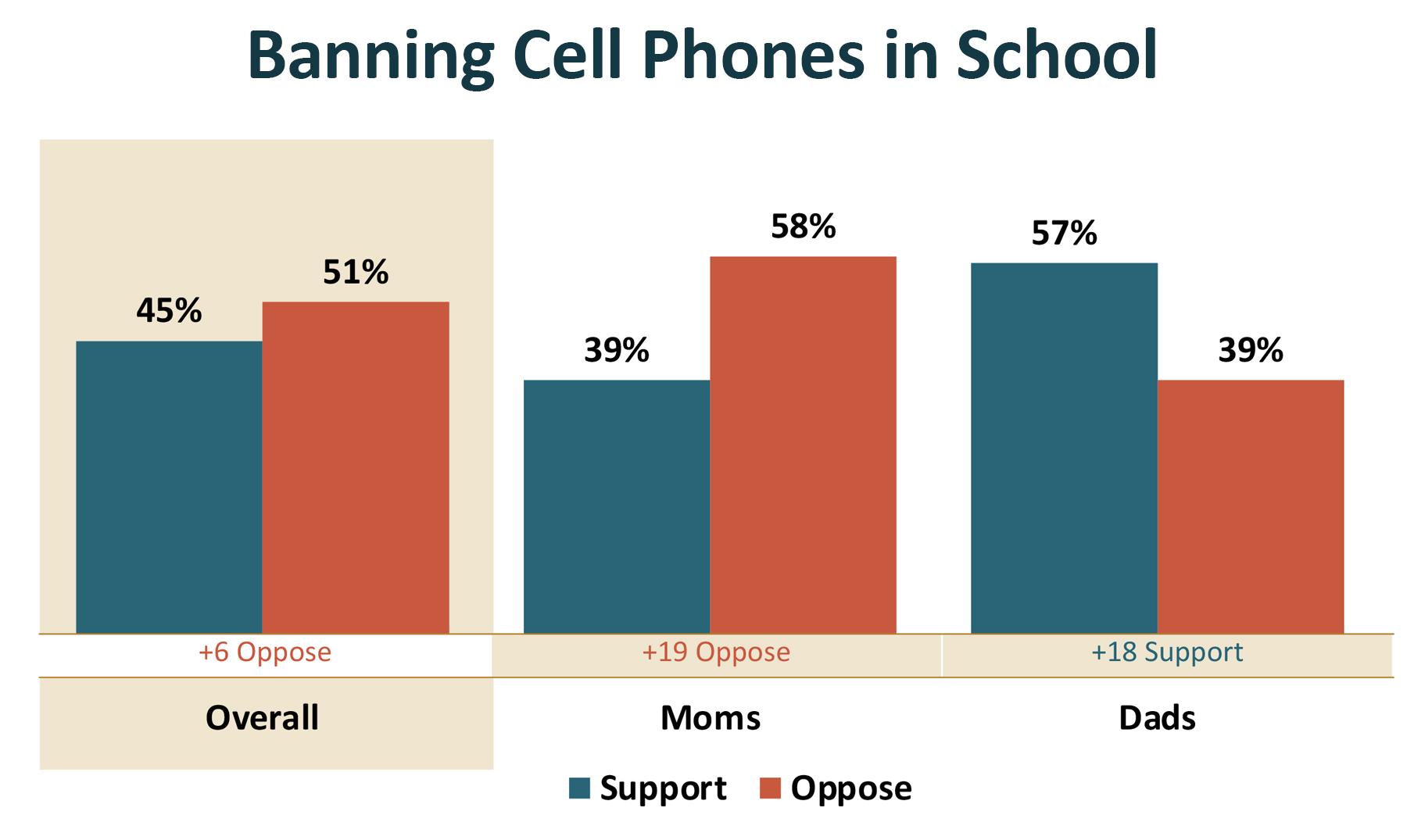
There is little support for lowering the drinking age to eighteen, and support decreases the further voters get from being eighteen.
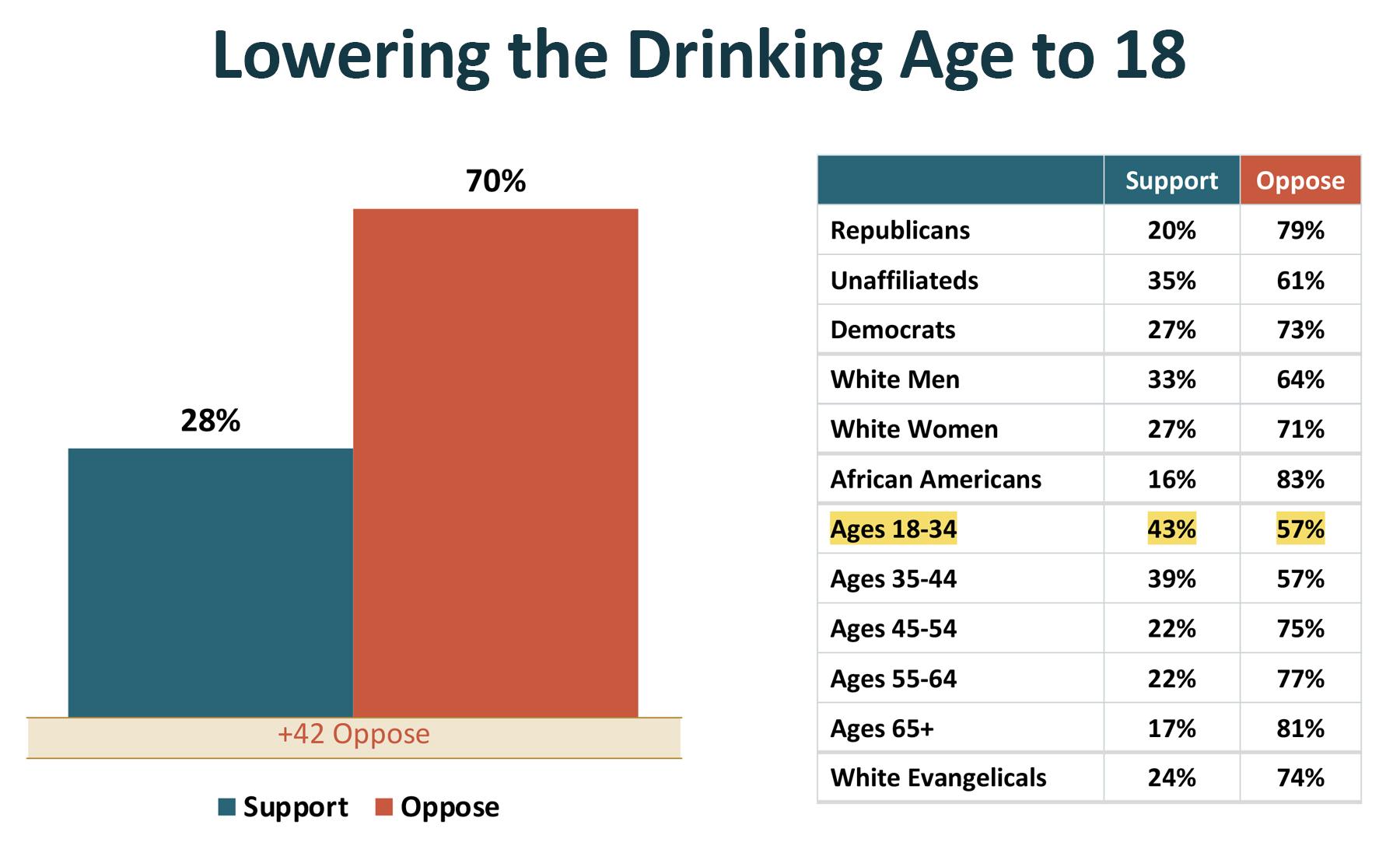
The Bottom Line
Buckle up. This is going to be a bumpy election year!
North Carolina voters are not optimistic about the country’s direction and they are clearly taking out their frustrations on President Biden. RFK Jr. is definitely impacting the presidential race, but he’s not the primary reason Biden is losing (it’s Biden).
Mark Robinson might have dominated the Republican gubernatorial primary, but he is underperforming currently among Soft Republicans and White Women. Soft Republicans and White Women are going to be key to determining the outcome here.
All this is happening at a time when Republican legislative candidates are in their strongest position in a decade. Four years ago, the generic ballot was tied; eight years ago, Democrats lead by eight points; today, Republicans are up six.
Economic issues dominate the state’s issue agenda, with a significant percentage of the state telling us their personal economic situation has gotten worse over the past year.
Proposal-wise, there is wide support for banning certain uses of AI and requiring local law enforcement to work with federal immigration enforcement officials. Voters are more divided on banning cell phones in schools and eliminating DEI positions in education, and support for lowering the drinking age to 18 is quite low.



